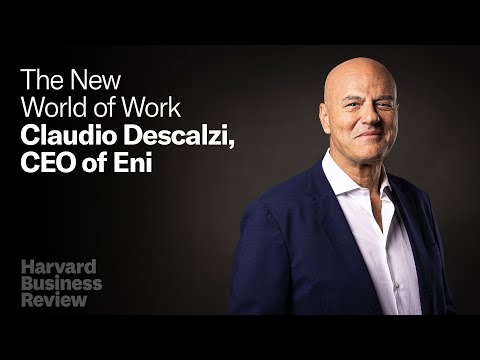Finnish your business - Networks for entrepreneurs

-Welcome to Finnish your business. Here, we leave no business unfinished. I'm your host Namrata Sethi. This podcast is by MEGE, - which is a joint project with Haaga-Helia, - Helsinki Business College, Aalto University and The Shortcut.
It's funded by Uudenmaan liitto. We have two guests joining us from Suomen Yrittäjät, Aicha and Reggie. Thank you for joining us and welcome. -Thank you. -If you could tell us a little about yourself.
-Sure. Thanks for inviting me. I'm Aicha Manai. I work for an organization Suomen Yrittäjät. I'm daughter of entrepreneurs. I'm surrounded by entrepreneurs but I'm not one. I'm Finnish-Tunisian.
That's about it. Thanks for having me. -I'm Reggie Rusan, I'm an entrepreneur and I also work for a corporation now. I'm part of a small minority and one of the smaller factions - of Helsinki entrepreneurs, Helsingin Yrittäjät. In that capacity, I'm the Chairperson for the Helsinki Entrepreneurs International. I also get to work with Aicha's group, - the Migrant Entrepreneurs Internet of Finland. I always mess up the name.
-Everyone does. It's a group of entrepreneurs - within Suomen Yrittäjät, who help us serve entrepreneurs better - and bring about the viewpoints of migrant entrepreneurs, - so that we can influence decision-making in Finland. -Okay. What does entrepreneurship mean to you and why is it important?
-Maybe the entrepreneur should answer first. -No one's ever asked me that question before. I spent a very long time in a corporate world. I became an entrepreneur when I moved to Finland - and was having difficulties finding work within a corporation.
Now that I'm an entrepreneur, something that I appreciate, - it is really that you have - direct responsibility and control over your own destiny as an entrepreneur. Quite frankly, it is taking your idea and turning it into a viable business. -Yeah, what Reggie said, entrepreneurship means freedom. It means innovation, passion, solving problems - and hopefully more about making the world a better place. I think entrepreneurship is a key to many big global problems. -Yeah. And having said freedom, doesn't mean it's all fun and games.
Because you need a customer who's willing to pay for your services. If you don't have that, your freedom is limited. -Exactly. Freedom comes with responsibilities. -What does your organization do? How do they help entrepreneurs? -Suomen Yrittäjät helps entrepreneurs on three different levels.
The first and the major or the most focal point of what it does - is that we influence decision makers in Finland. Entrepreneurs, everything, like regulations dictate - what entrepreneurs can do here and on a European level. We need to have an organization that sees that the regulations - are serving entrepreneurs reasonably. This is done on three different levels, on a European, national and local level - by influencing municipal decision makers. On a national level, by constantly having an open communication - with members of parliament and ministries. We are the organization, that if there's a new law being passed, - we see how it affects small and medium-sized enterprises.
Is it negative, positive? What can we do so that it affects them in a better way? We aim to make Finland a top place to do business in. The second one is from a networking perspective. We have 115 000 members. Wherever you go in Finland, you will find a branch of Suomen Yrittäjät. If you go to Kittilä, Espoon keskus or wherever, you find Suomen Yrittäjät. That offers a wide range of networks for entrepreneurs. For example, Reggie is a technological person.
Through us, you can meet entrepreneurs from different bubbles. It's a good thing. The third one is, we offer training, mentoring, coaching. We aim to educate entrepreneurs. Not that we tell, we educate you. The point is that - if you start a small business, then start growing and employing people, - you probably need help with people management and different aspects. That's where we try to offer different types of training, - webinars and different type of educational content.
-I agree, since I get to work at the Finnish level with Aicha - and at the local level in Helsinki. All of those levels are important. I would say, at the local level, - information dissemination and networking are key, - although I'm sure there's influencing of local governments and municipalities. But the work that we do at the Finland level with parliament, - that's ultra-important for entrepreneurs. -At what stage should an entrepreneur reach out to you? -As an entrepreneur, I'd say from the very beginning.
When I was building my business, I started building it in Espoo - because that's where I lived. They helped me with my business plan. I got lots of services from the Espoon Yrittäjät. As you know, Helsinki is the heavyweight. Wanting to help entrepreneurs, - both Finnish and non-Finnish connect together.
That's why I work with Helsinki Entrepreneurs International. -If you're planning on starting a business, - Uusyrityskeskus would be a good place to start. And once you become an entrepreneur, Suomen Yrittäjät is the place - because we offer support mechanisms and advice. I forgot to mention that we offer our members legal advice. We have legal aid that is open every day from 8 am to 8 pm. You can ask with whatever problem you have.
We also offer legal advice when it comes to employing people - because when small companies start employing people, they face hurdles. -It's almost a luxury being an entrepreneur in Finland - because the information is widely available. It's not always available in your language but they're making strides at doing that. Also, the services provided to the entrepreneur - are better than elsewhere. I've lived in a few countries.
Even in the US, you don't get this type of support as a budding entrepreneur. -Yeah, I feel like the ecosystem is strong and everybody's supportive. (Reggie:) Definitely.
-How can you join Suomen Yrittäjät? -At www.yrittajat.fi/liity. (Namrata:) Okay, great, that's good to know. What makes Helsinki region especially good place for starting a business? -One of the things that Suomen Yrittäjät did, - they kicked off a project to get statistics about - the demographics of entrepreneurs. And I was speaking as a migrant - or immigrant or international entrepreneur. I was impressed that there is well over 10 000 of us, - based on the study.
Operating across Finland, we represent over 3.5 billion euros - worth of revenue every year. One thing we haven't talked about - is that there's this promotion of entrepreneurship in Helsinki, - specifically, in the Uusimaa area. One in every three businesses is started by an immigrant. We're international or whatever you want to call us.
Because of that, you get more support - as a non-native Finnish speaking person. I think, because of that, we represent such a large population - within the entrepreneur community here in Helsinki. You have the ability to get better support. -Helsinki definitely has better networks than smaller cities. It's the capital, near the airport. It has a good ecosystem. Maria 01, Helsinki Think Company, all these hubs that help - with accelerating ideas and taking your idea to fruition.
I think the city of Helsinki is very entrepreneurially friendly. At least, currently it is. There are lots of opportunities in Helsinki. You can also find a lot more services in English in Helsinki than elsewhere.
-Even groups like The Shortcut, they helped me when I was starting out. I owe a lot to them. I always want to make sure they get the respect. -They're doing really well.
What are the challenges which are faced by immigrant entrepreneurs? -Entrepreneurs in general, in Finland, - Finland is a good country to do business. On the GEM, we're ranked 11. So, we're not a horrible country to do business in. We want to become the best country. But entrepreneurs in general, - usually, the problems are taxation issues. Entrepreneurs don't understand how taxation actually works, - where are the places that you pay taxes, - what are taxable, what are all of this.
Comparing migrant entrepreneurs and native Finnish entrepreneurs, - a lack of networks is definitely one. The language skills, not knowing Finnish. I wouldn't say Finnish business culture - because all the companies have their own cultures, but in general, - understanding how the Finnish system works. It takes a lot to understand how Finland operates and to find your place here.
-All of those are really important. I believe Finns typically don't buy from and hire people they don't know. So, building your network is really important.
As an international entrepreneur, you don't come in with that network. Finns take it for granted. They've gone to the same schools. They have tight-knit networks that have been pulled together. Especially if offering a service - that has more competition in the marketplace, - it's hard to unravel the networks where people would buy from a stranger.
If you have a new service, that's different. -What Reggie said is true. Finland is a tightly knit cluster of different networks who hire each other. I mean, not obviously always the case, but this is very common in Finland.
For a person who comes from a different background and language, - it's difficult to find their place. But because we have the problem, we statistically know that people - of foreign background or people who are born here with foreign sounding names, - they don't get hired. So, entrepreneurship becomes the only option for many people. This is why it's important that Finland is more entrepreneurial friendly. Also, we need to get our employers to widen their perspective - and see the possibilities in hiring a diverse group of people.
-I think the big multinationals get it. The companies like Nokia, we don't have to work with. But Finland is a country of small and medium-sized businesses. Is it 98%? -93% hire less than ten people. -So, that's where the larger amount of work needs to happen. -And the fact that we have about 283 000 companies - and out of those companies, 180 000 are solo entrepreneurs.
They don't have any employees and they usually work with other entrepreneurs. Like Reggie said, then they go like, - I need a website or a marketing plan, I call friends who are entrepreneurs. Then they are employing each other. For a migrant, it might be difficult to get into that group - so that they can start selling their consultancy services or whatever services. -Being a part of the early tie helps you expand your network quickly.
-Finnish International Entrepreneurs, join on Facebook. We have almost 2 000 members there, it's for entrepreneurs only. Except I'm there. But mostly entrepreneurs and people working with entrepreneurs. That's a good place to get to know other entrepreneurs and widen your networks. -Also, maybe aspiring entrepreneurs. (Aicha:) For sure.
We have Helsinki Entrepreneurs International Facebook page, too. I think we're over 2 000 or 3 000 now, probably more, I need to check. I haven't kept up with the statistics. But there are a lot of communities and support.
If you know someone that's in a network, - they'll point to other networks that help you build your network. -Networking is very important. It's all that everybody advises, - focus on your networks. Network, network. -Your network can provide everything from housing, banking to customers. As well as mentors and advice. -Yeah. Remember that when you... Is it do networking? That's probably not a verb.
Anyway, it's a give and take process. Never think that you're gonna use these people for your own gain - because you'll find yourself alone. Remember it's a two-way street. -Definitely. Yeah. What changes would you like to see to support immigrant entrepreneurship? -I'd say... Sorry, I have to put cream, my hands are freezing.
But I would say, mostly, - it's just hard to make happen, a change in attitude. When we look at media or read news about migrant entrepreneurs, - very often we find either the story of the great startup entrepreneur - who wants to invest millions here and was told to leave, - like the case a few months ago. Or we have the case of Nepalese restaurants - taking advantage of their employees and you should be wary of them, - and all of them are part of an organized crime ring.
Obviously, I'm highlighting here, but we need to have a multifaceted story. It's dangerous if we repeat one narrative of what migrant entrepreneurship is, - that it's only restaurants, ethnic stores or masseuses. The media has a big responsibility in broadening the perspective. Actually, in Suomen Yrittäjät, we have our own media. We focus on the fact that we want to bring different types of stories.
We want to show that more than 10 000 migrant entrepreneurs are in Finland and - almost every third business is opened by a migrant in the capital region. We have a diverse set of entrepreneurs. -From professional services to pizza. -Exactly. -Everything is great throughout the whole spectrum.
The promotion of internationals - in general, in Finland, has to improve. The fact that 99.9999% of Finns don't know - that there are over 10 000 immigrant entrepreneurs in Finland - and that we are the fastest growing entrepreneur class inside Finland. And we're already representing billions of euros of revenue internally in Finland.
That should be something that people know as much as these other stories. For some reason, that doesn't sell the press because they don't publish it. -Yeah, that's true. There is requirement for the media to throw light also on the good cases. (Aicha:) The good cases don't always have to be the startup entrepreneurs. It's strange. But there's this buzz. Maybe not as bad as a few years ago, -
but there's definitely buzz around startup entrepreneurs, - even though one in a thousand succeeds and we make such a big deal. They're innovative, doing good things, and we need accelerators and incubators. But the most companies work in the traditional sectors, - such as construction, service, health care, et cetera. -Those are great for the Finnish economy. So, I think, - categorically, immigrants are looked at - as people who come here to live off the system.
We have a very different narrative to communicate - because that's not the case. And you'll find that, as an international entrepreneur, - we're far more likely to hire other immigrants, as well. So, it really helps the ecosystem - because the other immigrants typically don't find their first job - within a classic Finnish organization.
They need history of successful work for other companies. -What does the future hold for immigrant entrepreneurs? -I think for entrepreneurs, in general, Finland has to realize - that this country, that has always been diverse, is becoming more diverse. Every tenth child born in Finland - has one or two parents who were born somewhere else, outside Finland. These people are making up the Finnish consumers. If companies don't start catering to this diverse group of consumers, - they'll die out in the competition because migrant entrepreneurs, - who are aware of the diversity in Finland, are able to cater to their needs.
So, entrepreneurs in general, have to take a deeper look at - what Finland is becoming and what Finland will look like in ten years. -Yeah, also, as Finnish companies become more globally aware, - they should first seek the person from the community - that they're looking to expand to, so they can use the feet on the ground - that are already here, to help them expand abroad. There are lots of positive things - specifically for the international entrepreneur. Also, definitely, the immigrant entrepreneur workforce - is a force to be reckoned with.
3.5 billion in revenue is not a small marketplace in Finland. It's large. So, people are already overlooking this community - that has a large spending power, and it's only going to increase over time. -I give one example. When you employ someone from a certain background - let's say, you want to go to Namibia, - you hire a Namibian who knows Namibians and has networks there. When you go to Namibia, the connection will probably be formed more easily - than if a person from Kittilä goes there, who has no clue. But an example, is it <i>lestadiolais</i> community? They are Finnish, but a minority. Is it <i>lestadiolan</i> in English?
Anyway, a religious minority in Finland. I heard a story of a company - that were selling gardening equipment or something like this. They hired a person from their community to work as their sales person. They noticed an increase in their sales because <i>lestadiolais</i> people - generally come from large family communities.
So, this person who started working for the gardening store - told his community members and they started shopping there. These are just small examples of what can happen - when you increase the diversity of the company that you own. -And there are lots of markets that, - because we don't have particular issues here, - that Finnish companies miss out. I give you a real case in point. I hope Finnish EdTech companies go to African markets, - Nigeria and Tanzania, sometimes South Africa. In those markets, there's a huge need for - a complete school management system. There's no offering in the Finnish space because Finns don't need that.
When you look at the market size of a country like Nigeria, - that is, I don't know, - 20 times bigger than Finland. I know Finns could easily develop that if they recognize the problem here. And it's a benefit - hiring diverse workforce that can help you - expose problems that we don't need to solve here, but are huge globally.
If you're first in the market with local representative, your products win. -What advice would you give to an entrepreneur, in five words? -Start now and seek help. -Lead with heart and passion, get your numbers right, - get a mentor, ask for help. -And join Suomen Yrittäjät.
(Aicha:) Yes, join them. -Yeah, that's been great. Thank you for joining us - and sharing these insights with us. -Thank you.
2021-04-28 11:42


